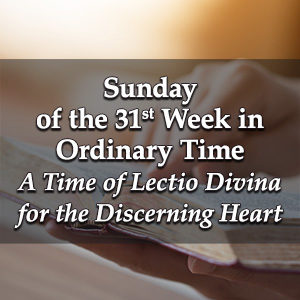Podcast: Play in new window | Download (Duration: 31:43 — 21.9MB) | Embed
Subscribe: Apple Podcasts | Spotify | Amazon Music | Android | Pandora | iHeartRadio | JioSaavn | Podchaser | Gaana | Podcast Index | Email | TuneIn | Deezer | Anghami | RSS | More

Episode 2: What is Death? – Salvation Begins Now: Last Things First
Deacon James Keating and Kris McGregor explore deep themes of Catholic theology around death, salvation, and the journey of purification, both in life and after death. Humanity’s fear of death often stems from the fear of isolation, as humans are created for communion with God and each other. Death brings an anxiety rooted in the dread of losing this communion. Purgatory is a continuation of this journey toward holiness. For those who die in God’s friendship but are still imperfect, purgatory allows for the purification needed to enter Heaven’s fullness—a process likened to a “fire” of love that cleanses and prepares the soul for eternal communion.
The Catholic belief that life on earth should be seen as an opportunity for ongoing repentance and purification, reducing the need for purgatory after death. Sin, especially mortal sin, can sever one’s connection to God, while venial sin does not fully break this bond, allowing hope of eventual communion. The Mass is the ultimate prayer of salvation, as it directly connects the faithful to Calvary and Christ’s redemptive love. The Mass is uniquely powerful for praying for deceased loved ones, as it is a touchpoint of divine grace where heaven meets earth. Catholics should continually pray for the deceased, highlighting the importance of love, community, and intercessory prayer in the Church’s understanding of salvation and eternal life.
Discerning Hearts Reflection Questions
- Understanding Purgatory’s Purpose – How does viewing purgatory as a relational purification rather than a physical torment change your understanding of its purpose?
- Contemplating the Impact of Sin – Reflect on how even “small” sins disrupt the harmony of the Body of Christ and affect your own spiritual health.
- Identifying Relational Pain – In what ways have feelings of isolation or confusion about your identity impacted your relationship with God and others?
- Embracing the Sacrament of Reconciliation – How might regularly participating in the sacrament of reconciliation deepen your experience of God’s mercy and freedom?
- Confronting Fear of Truth – What specific fears or rationalizations have kept you from fully admitting your sins to God in the sacrament of confession?
- Learning from the Saints – Who in your life exemplifies holiness, and how can you look to them as a guide toward surrender and abandonment to God?
- Trusting in God Through Suffering – How can embracing Christ’s Sacred Heart help you surrender fears about suffering or death and experience God’s peace?
- Striving for Earthly Holiness – What steps can you take to start your purification process on earth, inspired by the examples of saints like Mother Teresa and St. John Paul II?
From the Catechism of the Catholic Church:
“1030 All who die in God’s grace and friendship, but still imperfectly purified, are indeed assured of their eternal salvation; but after death they undergo purification, so as to achieve the holiness necessary to enter the joy of heaven.”
Deacon James Keating, Ph.D., is a professor of Spiritual Theology and serves as a spiritual director at Kenrick Glennon Seminary in St. Louis, MO. 












 Sunday of the Thirty-First Week in Ordinary Time – A Time of Lectio Divina for the Discerning Heart Podcast
Sunday of the Thirty-First Week in Ordinary Time – A Time of Lectio Divina for the Discerning Heart Podcast

